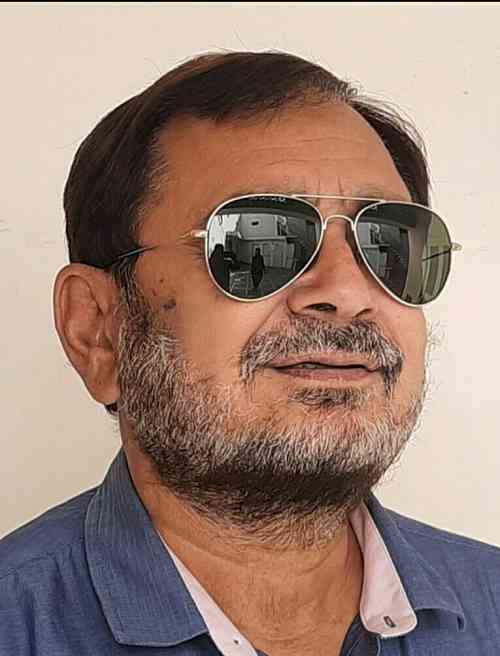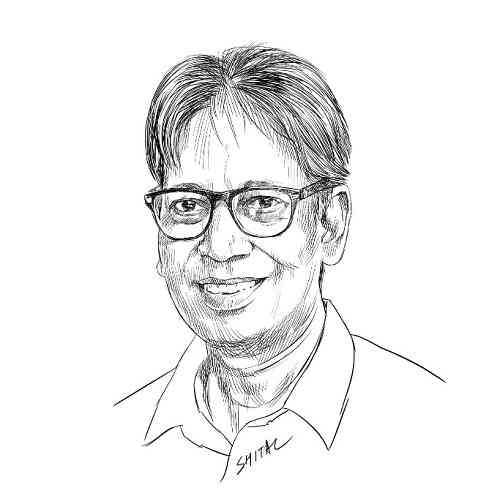“NAKSHA”: A New Direction for Reliable Land Records and Citizen Empowerment
“NAKSHA” Provides the Digital Identity of Your Land

By Shivraj Singh Chouhan
When India envisions an inclusive and developed future, its strongest foundation is land itself. Whether it is a house, a farm, a shop, or the dream of a smart city — every form of development stands on land. However, the truth is that for years, our land records have remained incomplete, confusing, and often entangled in disputes. As a result, ordinary citizens have faced significant challenges in purchasing property, inheriting land, securing loans, or accessing government schemes.
To address these long-standing issues, under the guidance of Prime Minister Shri Narendra Modi, the Department of Land Resources under the Ministry of Rural Development has launched the NAKSHA (NAtional geospatial Knowledge-based land Survey of urban HAbitations) programme. It is an initiative to transform land management, administration, and record-keeping in India. This programme is creating a transparent, digital, and verified land record system that will not only make citizens’ lives easier but also accelerate the development of towns and cities.
In India, land registration has long been a tedious, paper-based process. Sale deeds, stamp duties, registration fees, patwari verification, and submissions at the tehsil level made the entire system burdensome for citizens. Old registers and files were not only prone to errors and tampering but also became the root cause of many disputes. Unclear property records reduced the possibility of obtaining loans from banks. The process of inheritance or mutation often remained stuck in courts for years. Incorrect measurements, vague boundaries, and local political interference further aggravated these problems. This is why, for millions of Indians, land often became less a source of security and more a source of risk.
NAKSHA: Step towards Digital Transparency
The NAKSHA programme leverages advanced technologies such as drone surveys, GNSS mapping, and GIS tools to build precise and digital land records. Under this initiative, citizens receive a government-backed UrPro (Urban Property Ownership Record) Card, a digital proof of ownership that simplifies property transactions. With NAKSHA, people no longer need to rely on piles of paper or intermediaries to validate ownership, while obtaining loans, completing sales, inheritance, and resolving disputes become faster and more transparent. Ultimately, NAKSHA is not just a technological reform — it is a step toward citizen empowerment, equality, and legal assurance in land ownership.
The NAKSHA programme primarily benefits citizens who have long relied on incomplete or obsolete land records. Municipalities and local councils now have access to clean, accurate geospatial data, enabling better decision-making and transparency. Citizens can easily view draft maps online and raise objections, ensuring public participation in the process. This digital system also makes taxation fairer and more transparent, while improving the accuracy and speed of urban planning and infrastructure design. In essence, what once existed only as handwritten entries in dusty registers has now evolved into colorful, interactive, and transparent digital maps, marking a significant step toward modern, data-driven governance.
The NAKSHA programme extends its impact far beyond individual ownership and administrative efficiency, emerging as a crucial tool for disaster management and urban planning. By providing detailed elevation data, it enables the identification of flood-prone zones, while in the case of cyclones, earthquakes, or fires, it allows rescue and relief operations to commence without delay. Verified digital ownership records also ensure that compensation and aid reach the rightful beneficiaries swiftly, making post-disaster recovery more efficient. Moreover, NAKSHA supports long-term urban resilience by promoting balanced and sustainable infrastructure development.
For Non-Resident Indians (NRIs) and vulnerable groups such as persons with disabilities, NAKSHA brings security and accessibility — allowing them to view and verify property records online, reducing the risk of any fraud and encroachments, and ensuring ease of access without frequent visits to government offices. In essence, NAKSHA is not just a technological reform but a symbol of trust and empowerment for citizens across the world who have a stake in India’s land and future.
Laying Foundation of Developed India
Throughout India’s history, land disputes have often bred inequality, conflict, and delay — but the NAKSHA programme is transforming that legacy by making the land governance system transparent, efficient, and citizen-centric. By integrating with national missions like Smart Cities, PM Gati Shakti, and PM SVANidhi, NAKSHA is becoming a vital part of India’s developmental future. It not only strengthens local governance but also fosters citizen participation, empowerment, and economic growth, paving the way for greater investment and job creation. Land, after all, is not just a physical asset — it is the identity and legacy of every Indian citizen. For decades, this legacy was clouded by disorder and corruption, but NAKSHA is ushering in the Amrit Kaal of trust, transparency, and equality. With secure, verified digital land records, citizens now truly hold the key to their dreams — guiding India towards a more just, transparent, and developed future.
The Author is the Union Minister for Rural Development and Agriculture & Farmers’ Welfare



 City Air News
City Air News 








